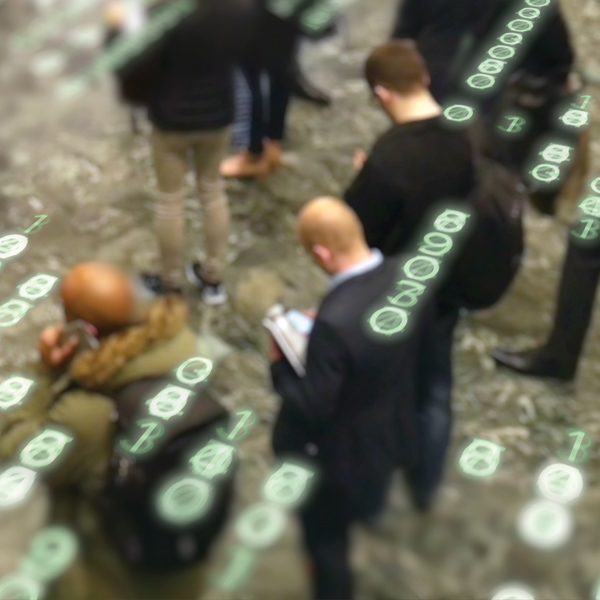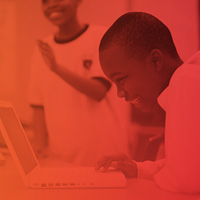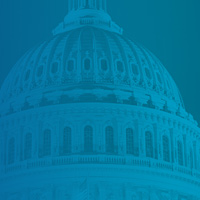-
Grants
16
-
Total Awarded
$12,203,455
-
Years
2000 - 2022
-
Categories
Grants
The Litmus team at New York University’s Marron Institute works with criminal justice systems to develop policies and effect practice changes that reduce incarceration, improve conditions of confinement, reduce lengths of stay, and improve community reintegration. Under a grant from the U.S. Department of Labor, Litmus works with the Illinois Department of Corrections (IDOC) to enhance vocational offerings in six southern Illinois prisons and improve post-release employment outcomes. This grant enables Litmus to create a searchable database of resumes for people in IDOC custody, so that they can post their resumes where interested employers can see them, and effectively begin their search for jobs prior to their release. This work contributes to the overall goal of building a sustainable statewide system that eliminates barriers to successful reentry through cross-agency collaboration and holistic treatment of individuals impacted by the criminal justice system.
The Center on Race, Inequality and the Law (the Center) engages in a range of advocacy efforts to challenge the oppression and marginalization of Black people and people of color in all sectors of our society, including racial inequality in the administration of justice, as well as racial and economic segregation in urban communities. The Center works to advance its mission through a variety of strategies including narrative change to shape conversations about racial inequality in the criminal legal system and other sectors of society; research and reporting that applies a racial equity lens across a range of institutions and systems that shape or impact lives; litigation and policy advocacy to address racial disparities in the criminal legal system and propose solutions that aim to achieve fairness and equity; and, coalitions, convenings, and partnerships with grassroots allies, researchers, legal and policy advocates, and community stakeholders to advance racial equity across sectors. The award provides flexible support to the Center as it carries out this work, and plans for the establishment of a new network comprised of scholars, community stakeholders, advocates, and lawyers examining and addressing a range of racial justice concerns related to the impacts of artificial intelligence and other technologies on the criminal legal system.
The award supports two “litigating algorithms” workshops organized by the AI Now Institute to be held in the U.S. and the European Union. Both workshops will convene experts focused on litigating algorithmic decision-making systems in various areas of the law – from employment to social benefits to criminal justice – to discuss strategy, best practices and exchange ideas about their experiences and strategic thinking around litigation in this emerging area.
X-Grant to support an interdisciplinary workshop co-sponsored by the AI Now Institute; New York University’s Center on Race, Inequality and the Law; and the Electronic Frontier Foundation focused on the practice of litigating algorithmic decision-making systems in a variety of areas of the law including employment, social benefits and criminal justice.
The AI Now Institute (AI Now) is an independent, interdisciplinary research effort based at New York University that is dedicated to studying the social and economic impacts of artificial intelligence (AI). The award provides general support to AI Now as it produces rigorous empirical research and undertakes policy analysis and public engagements on pressing areas of concern related to AI including: 1) from bias to inclusion; 2) labor, unemployment and the future of opportunity; 3) basic rights and liberties; and, 4) critical infrastructure and safety. By focusing on these areas, AI Now aims to help ensure that AI benefits as many people as possible and that potential harms are mitigated. Much of AI Now’s work takes place through partnerships and collaborations across industry, academia, civil society and affected communities in order to ensure that the research it produces has a real-world impact.
The Information Law Institute at New York University Law School is an academic center for the study of law, policy, and social norms defining and affecting the flow of information in a digitally networked society. The award supports the AI Now Symposium taking place at the MIT Media Lab on Monday, July 10th, 2017. It brings together experts from across a range of domains and sectors researching the social impacts of artificial intelligence technologies now to help ensure a more equitable future. Thematic areas to be explored during the symposium include rights and liberties, labor and automation and bias and inclusion.
The award supports the 2016 AI Now Symposium.
Richard Arum is a professor of sociology in New York University’s (NYU) Department of Sociology and a professor of education in its Steinhardt School of Culture, Education and Human Development. Over the past four years, he has led a team of researchers in the documentation of implementation and institutional and youth outcomes at MacArthur-supported Connected Learning demonstration sites, including the Quest to Learn schools, the Hive Learning Networks in New York and Chicago, and YOUmedia and Learning Labs projects across the country. As part of the Foundation’s efforts to evaluate elements of the Digital Media and Learning work, this grant will provide resources to design and deploy an approach to assessing youth outcomes in Cities of Learning locations in Chicago, Dallas, and Pittsburgh, and to carry out a final round of research at Quest schools, primarily to provide insight into the impact of the Quest pedagogy on students’ transition to college and the workplace.
The Center for Human Rights and Global Justice at the New York University (NYU) School of Law works to advance the theory and practice of human rights through engaged academic research and education. This project combines the empirical study of data visualization in the human rights field with the creation of evidence-based guidelines and the delivery of training for three to five partner organizations in the effective use of visualization for persuasion. An interdisciplinary team at NYU is implementing the project, bringing to bear expertise in human rights law and advocacy from NYU School of Law and in data visualization from NYU Polytechnic School of Engineering. The visualization guidelines are being widely distributed among human rights practitioners and grantmakers supporting human rights work, so they are better equipped to make evidence-based, strategic decisions about the use of visualization in the context of their work.
This grant to the Governance Lab at NYU’s Robert F. Wagner Graduate School of Public Service supports a multi-year, interdisciplinary MacArthur Research Network on Opening Governance, which seeks to build an empirical foundation and fundamental understanding of how to redesign democratic institutions to produce more effective and legitimate governance. In a time of growing concern that existing political systems cannot address the complex challenges that society faces, the Network will examine how innovation in the design of democratic institutions - bringing more knowledge in, pushing more data out, and sharing responsibilities with citizens - may lead to more effective and legitimate governance.
The Center for Urban Science and Progress (CUSP) is a NYU-based public-private planning, applied science, and engineering research center that brings the best available knowledge and techniques from a range of academic and technical disciplines to bear on the challenges of planning and governing cities. CUSP will use this grant to: convene emerging urban science centers to explore the programmatic, structural, staffing, and operational models being developed and outline a common research agenda; launch an urban science fellowship at CUSP to support and shape its research and teaching agenda; and explore a possible new urban sciences journal, the Urban Data Review.
Richard Arum is a professor of sociology at New York University and Program Director of Educational Research at the Social Science Research Council, where he created the Research Alliance for New York City, a consortium of educational stakeholders that evaluates and assesses public school improvement efforts. This grant funds the documentation of the three major demonstration sites of the digital media and learning initiative: Quest schools and learning networks in Chicago and New York City; and the YOUmedia sites in Chicago, New York, and Washington D.C.; and modest documentation of the design of ten new learning lab sites based on the Chicago YOUmedia model.
To design an agenda for a possible research network to study the impact of new technologies on democratic institutions in the United States and globally.
To document and evaluate learning networks in Chicago and New York City (over 18 months).
Professor Richard Arum is a professor of sociology in the New York University’s Department of Sociology and a professor of education in its Steinhardt School of Culture, Education and Human Development. He and his colleagues will use this grant to document and evaluate the Quest schools in New York City and Chicago - public middle schools that employ an innovative, hands-on approach to learning based on principles of game design that fosters greater student engagement. The evaluation will focus on students’ backgrounds; the quality and effectiveness of daily school practices; and students’ performance and learning outcomes.
For "A Hierarchical Community: Korean Diaspora and Unification."









